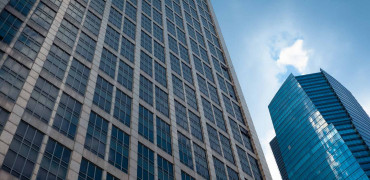My colleague Martin Fahey has previously written about a new podcast that we recently recorded with BESA but at the time couldn’t mention that it involved Chris Skidmore MP, the author of the seminal report into Net Zero: ‘Mission Zero’.
I was lucky enough to also take part in the podcast which can be found on the BESA website.
I promise you it’s well worth a listen.
Chris Skidmore OBE is Chair of the Independent Government Review on Net Zero and his Report makes 129 recommendations on how the UK can prosper from a ‘green economy’.
The report looks at all the steps society should take to ensure that we can get to Net Zero by 2050 and, far from meaning that we lose things on the journey, it actually talks about how Net Zero can make us both warmer and richer.
All of us can help draw the map to Net Zero
Digging deeper
Mission Zero: Independent Review of Net Zero was published in January and, at 340 pages, is quite a long read.
The report covers six different pillars or chapters, and I’ve tried to pick out the most salient points for the HVAC sector in some previous blogs, which I link to below.
The podcast though, was an opportunity to question Chris Skidmore and dig deeper into the understanding behind the report.
Expertly hosted by David Frise, the Chief Executive of BESA, the podcast gave David, me and my colleague Martin Fahey the chance to explore the thinking behind the report and ask Chris Skidmore to explain why this is all so important.
Looking for a common aim
Chris Skidmore explained that he and his team only had three months to produce Mission Zero and he praised the civil servants, independent experts and cross-party MPs who all contributed.
His mission now is to double down and look at Phase II – building a Net Zero network to really look at the policy landscape and work out where are the opportunities?
Before that though, we discuss how with Net Zero, we are trying to take an abstract context and turn it into tangible things for buildings. Things that can be measured and readily understood.
It’s worth reminding ourselves that our destination is already fixed – Net Zero by 2050, and we simply must get there.
But there is no road map on the best route to take, and everyone is starting from a different place on the journey.
The Mission Zero report seeks to bring everyone together on a common aim.
For me, the lesson of speaking with Chris Skidmore is that we can all help to draw the map to Net Zero!
It’s economics, stupid
The other really interesting thing to come out of the podcast for me, is the realisation that Net Zero is not just environmental issue but actually more of an economic one, so it just makes sense all round.
As Chris Skidmore explains in more detail on the podcast, Net Zero is good economically for businesses, for people, and for the country.
The added benefit is that we just happen to be saving the planet at the same time.
The difficulty is that often the view is focused on the short term, whether that is in terms of the political cycle or the phases of a buildings construction.
We need our politicians and policy makers to agree long term objectives that look beyond the next election.
And we need industry to embrace the change needed. History shows us it can be done.
I won’t go into any more details here because it’s well worth listening to the podcast, but it does talks about building regulations, and the best methods of checking and measuring.
We also look at the future of heating for the overwhelming majority of homes – heat pumps, and talk about getting the transition right and ensuring we bring everyone along. We also touched on the biggest challenge which is the skills shortage in renewable heating engineers.
I hope the podcast gets listened to far and wide and, for me, we will now be looking at ways of helping to promote awareness of this interesting discussion, so that we can continue the conversation and expand the audience.
Please do get in touch if you would like to contribute.
The 6 pillars supporting Mission Zero
In previous blogs, I’ve tried to dissect the full report and pull out the pertinent points for construction, HVAC and the built environment. These cover the following chapters of the report:
Pillar 1 – Securing Net Zero
Pillar 2 – Powering Net Zero
Pillar 4 – Net Zero & the Community
Pillar 3 – Net Zero and the Economy
Pillar 5 – Net Zero and the individual
Pillar 6 – Net Zero and the future
Chris Newman is Net Zero Carbon Design Team Manager




